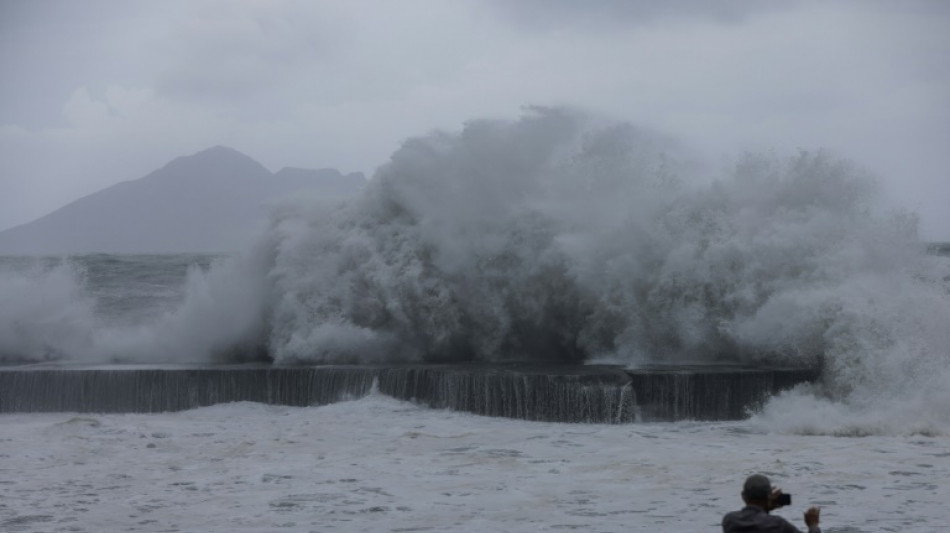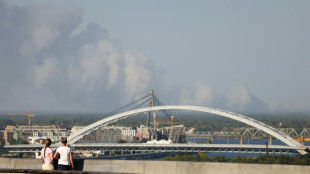

Storm Haikui heads to China after double landfall in Taiwan
Typhoon Haikui toppled hundreds of trees, damaged coastal roads and dumped torrential rains across Taiwan Monday before it weakened into a severe storm and headed for southern China.
Haikui had initially appeared to depart the island but made a second landfall early Monday in southwest Kaohsiung, before it was downgraded to a severe tropical storm as it moved out into the Taiwan Strait.
There were no reports of deaths, but destruction was seen in coastal Taitung, a mountainous county in lesser-populated eastern Taiwan where the storm directly hit the day before.
"I've lived here for so long and I have never seen such wind gusts," said Chen Hai-feng, 55, a village chief in Taitung's Donghe township, where he was with an early-morning work crew removing trees from a road.
Although Haikui is considered to be less severe than previous storms, Chen said it felt more powerful.
"It came straight through us."
Workers carefully manoeuvred diggers to move downed tree branches and electrical wiring that had snapped and splayed across the rain-drenched road.
Further north in coastal Changbin township, workers ferried massive concrete blocks to a coastal highway that had partially collapsed from the force of waves slamming into it, hoping they would absorb the impact.
Heavy orange-coloured barriers were placed near the edge to prevent cars from skidding over on the slippery roads.
Haikui -- the first typhoon landfall in Taiwan in four years -- forced the evacuation of more than 7,000 people across the island, particularly from landslide-prone mountainous regions. Hundreds of flights were cancelled and businesses were closed.
More than 217,000 households temporarily lost power through Sunday and overnight. By midday Monday, 11,000 homes still had no electricity, while schools and businesses remained closed in 14 cities as torrential rain bucketed down.
A forecaster with Taiwan's Central Weather Bureau said Haikui initially appeared to track away from the island and out to sea but made a second landfall in Kaohsiung at around 4:00 am (2000 GMT Sunday).
During the night "the centre of the typhoon was almost circling" the port city, but as it moved along the coastline "the structure of the typhoon is damaged by the terrain and gradually weakens", she said.
By mid-day, the storm had moved southwest of Taiwan's outlying island of Penghu, but was still bringing torrential rain and strong winds to the south and northeast.
In picturesque Hualien county, waterfalls cascaded down the lush cliffs along Taiwan's east coast, while market vendors in Keelung -- a northern port city surrounded by mountains -- braved the rain to sell fruit to raincoat-clad shoppers.
In Kaohsiung, the local government reported hundreds of toppled trees and flooding in dozens of locations, although the situation was easing as the storm departed and the weather conditions improved.
Nearly 80 people suffered injuries during the typhoon, according to authorities, though they were minor -- mostly due to fallen trees and car accidents.
H.Rathmann--HHA


